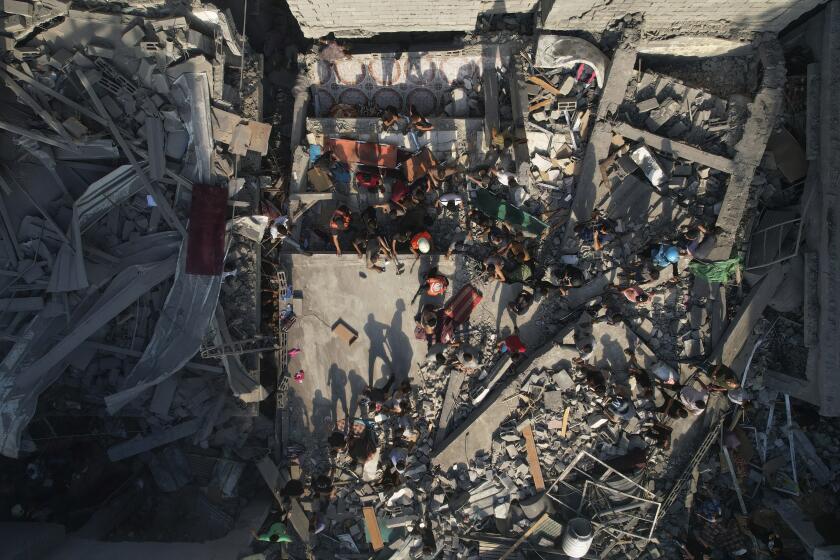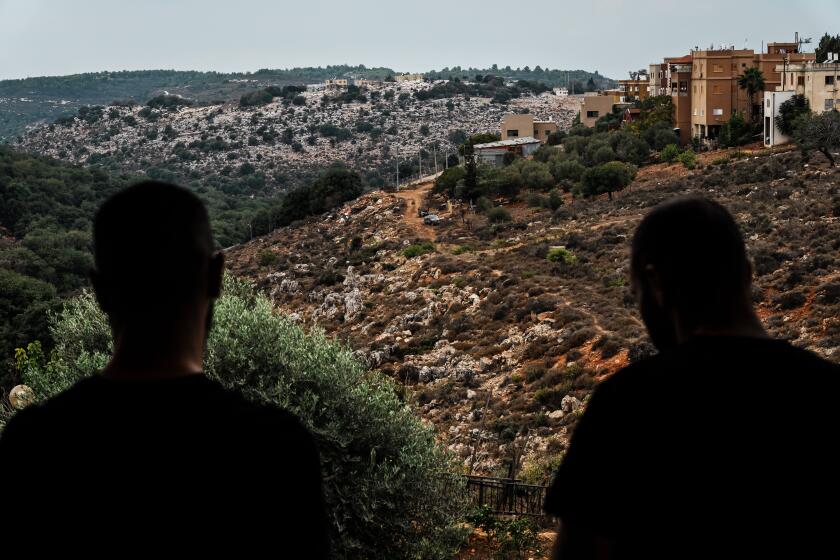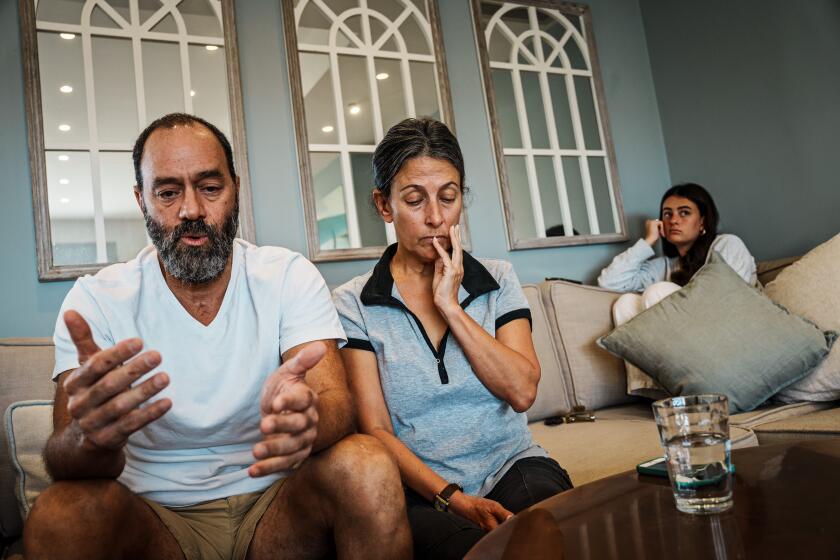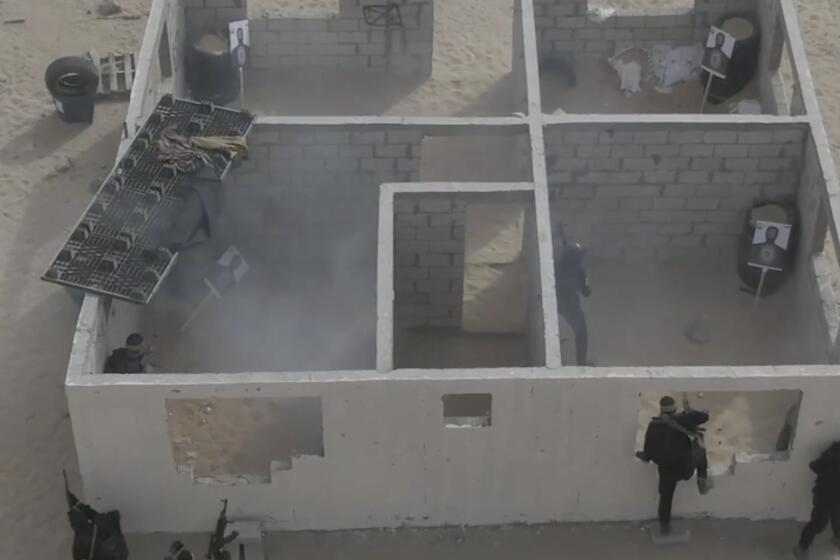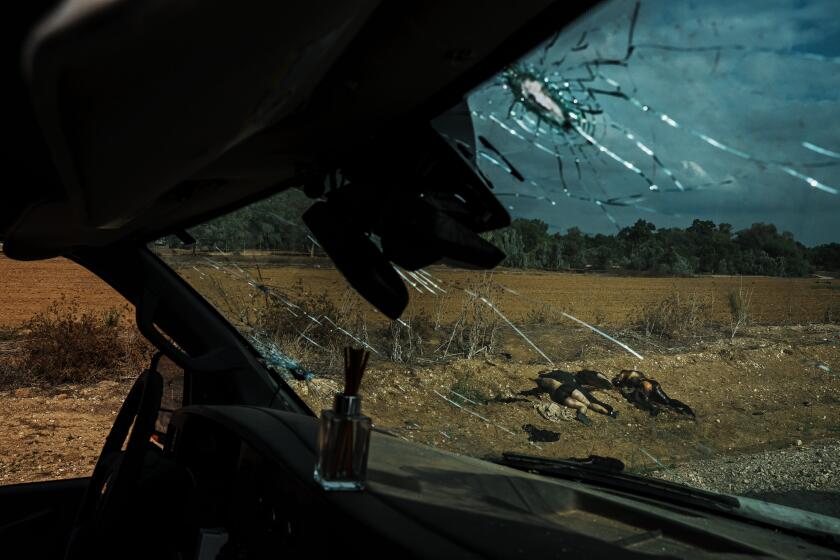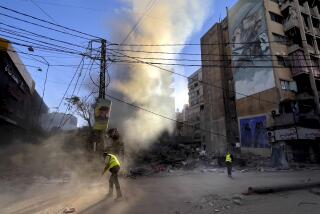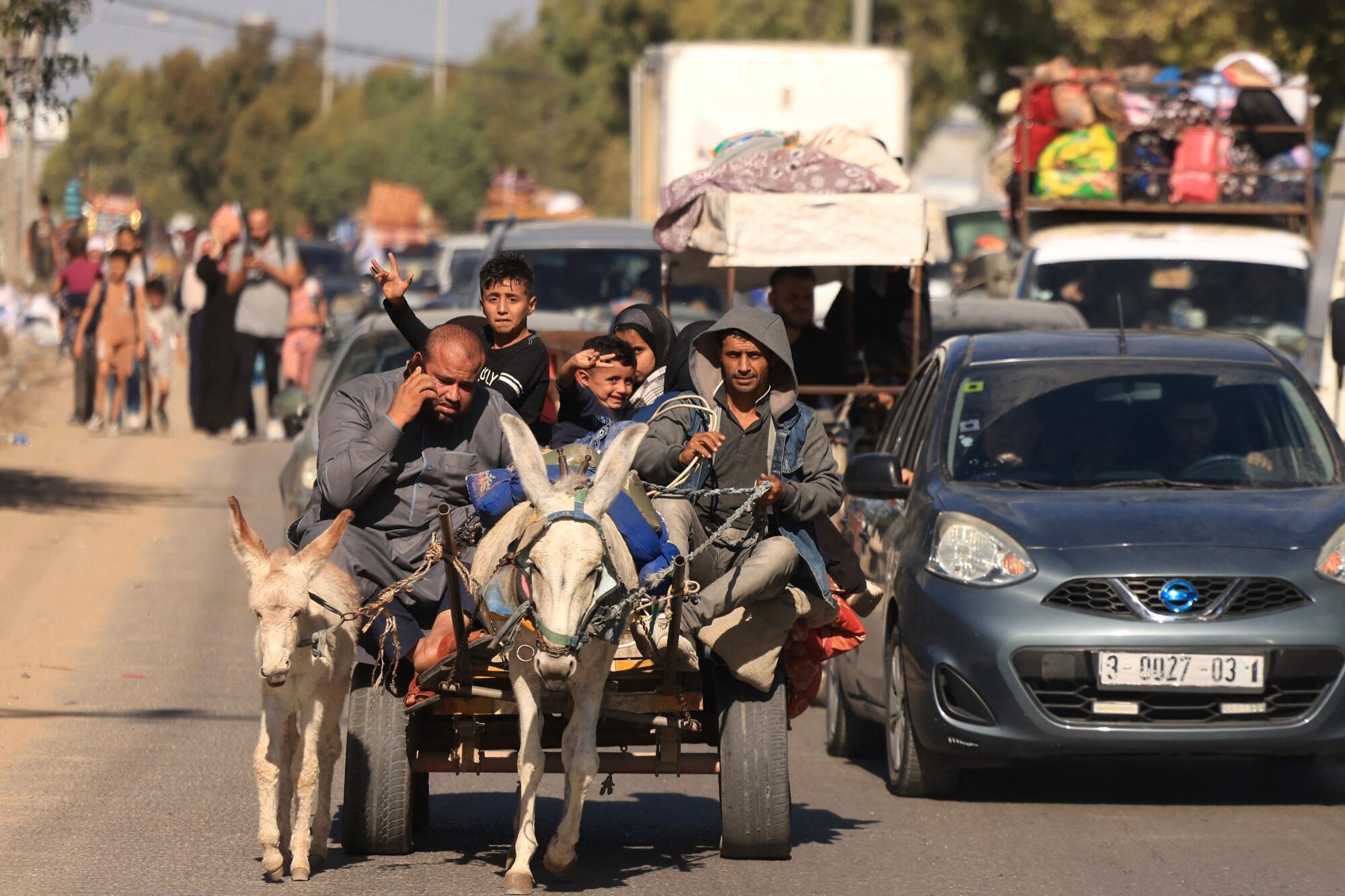
JERUSALEM — Palestinians fled the northern Gaza Strip in a mass exodus Friday after Israel’s military told some 1 million people to evacuate to the southern part of the besieged territory ahead of an expected ground invasion into the enclave to target Hamas, the militant ruling group.
The United Nations warned that so many people fleeing en masse would be calamitous, and urged Israel to reverse the unprecedented order. Families in cars, trucks and donkey carts packed with blankets and other possessions streamed down a main road out of Gaza City as Israeli airstrikes continued to hammer the territory.
Hamas’ media office said warplanes struck cars fleeing south, killing more than 70 people.
Israel’s military said that its troops had entered Gaza on temporary raids to battle militants and hunt for traces of some 150 people abducted in Hamas’ Oct. 7 attack on Israel, in which the militants killed hundreds of Israeli civilians.
In urging the evacuation, Israel’s military said it planned to target underground Hamas hideouts around Gaza City. Separately, Palestinians and some Egyptian officials fear Israel wants to push Gaza’s people out through the southern border with Egypt.
Hamas told people in Gaza to ignore the evacuation order, and families in the territory faced what they saw as a no-win decision to leave or stay, with no safe ground anywhere. Hospital staffers said they couldn’t abandon patients.
Unrelenting Israeli strikes over the last week have leveled large swaths of neighborhoods, magnifying the suffering of Gaza, which is sealed off from food, water and medical supplies and under a virtual total power blackout.
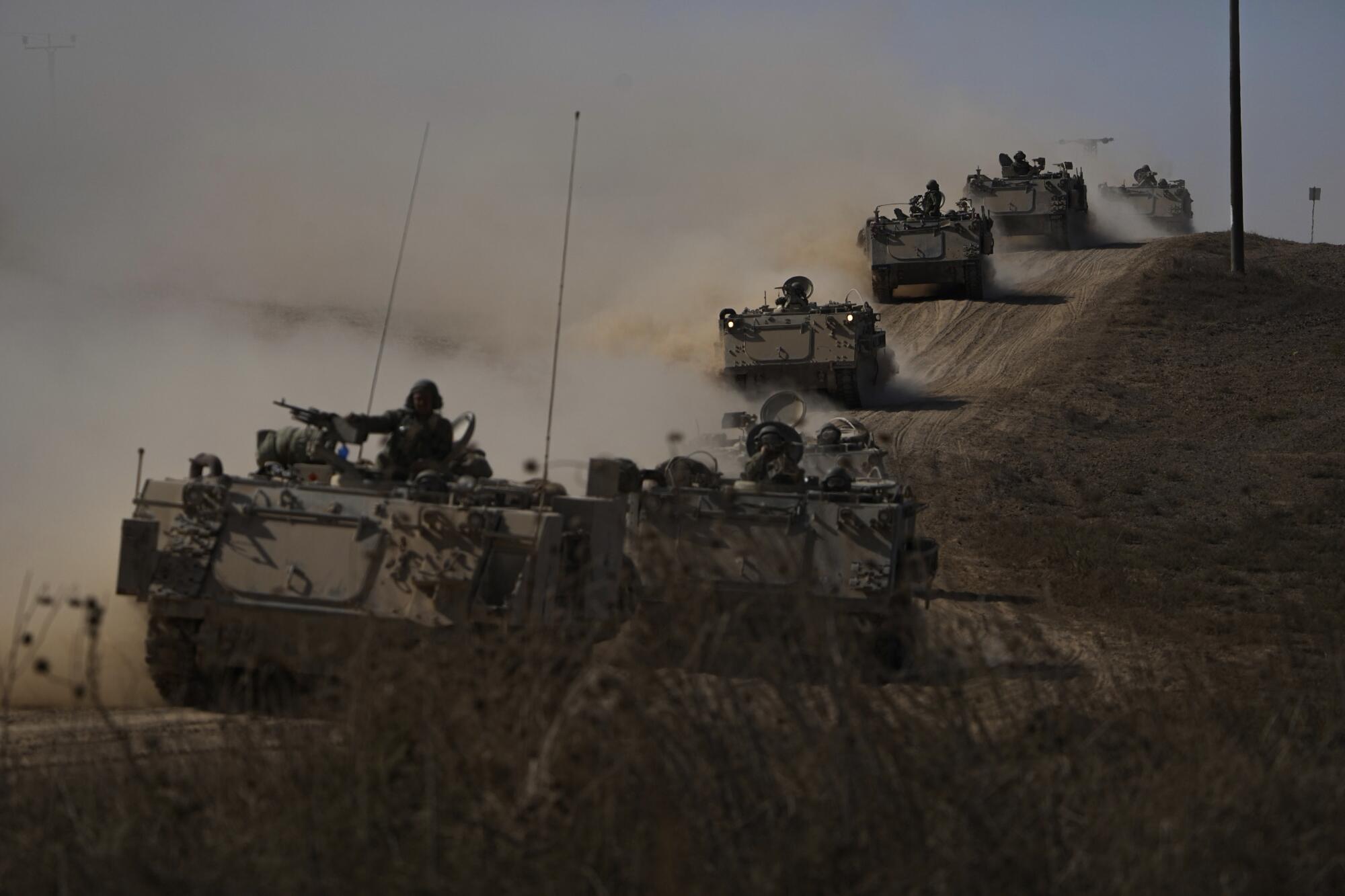
“Forget about food, forget about electricity, forget about fuel. The only concern now is just if you’ll make it, if you’re going to live,” said Nebal Farsakh of the Palestinian Red Crescent in Gaza City.
Palestinian Americans with Gaza connections struggle with feelings of helplessness over violence after Hamas’ attack and Israel’s retaliation.
Israeli Prime Minister Benjamin Netanyahu, meanwhile, vowed in a nationally televised address late Friday to finish off Hamas.
“This is just the beginning,” he said. “We will end this war stronger than ever.”
“We will destroy Hamas,” he said, adding that Israel has widespread international support for the operation.
In the nearly week-old war, the Gaza Health Ministry said Friday that roughly 1,900 people had been killed in the territory, including more than 580 under the age of 18 and 351 women. Hamas’ assault last Saturday killed more than 1,300 people in Israel, including women, children and young music festival-goers, and roughly 1,500 Hamas militants were killed in the fighting, the Israeli government said.
The war has sent tensions soaring across the region. Israel has traded fire in recent days with Lebanon’s Hezbollah militant group, sparking fears of an ever-widening conflict, though that frontier has been relatively calm since.
On Friday, however, an Israeli shell landed in a gathering of international journalists in southern Lebanon, killing a Reuters videographer and leaving six other journalists injured.
An Associated Press photographer at the scene saw the body of Reuters videographer Issam Abdallah and the six who were wounded, some of whom were rushed to hospitals in ambulances. Images from the scene showed a charred car.
On Israel’s border with Lebanon, residents are worried that groups like Hezbollah will join a war that eventually spirals into a regionwide conflict.
Weekly Muslim prayers brought protests across the Middle East, and tensions ran high in Jerusalem’s Old City. The Islamic endowment that manages a disputed holy site in the city, the Al Aqsa Mosque compound, said Israeli authorities were barring all Palestinian men under the age of 50 from entering.
Israel has bombarded Gaza round-the-clock since Hamas’ weekend attack.
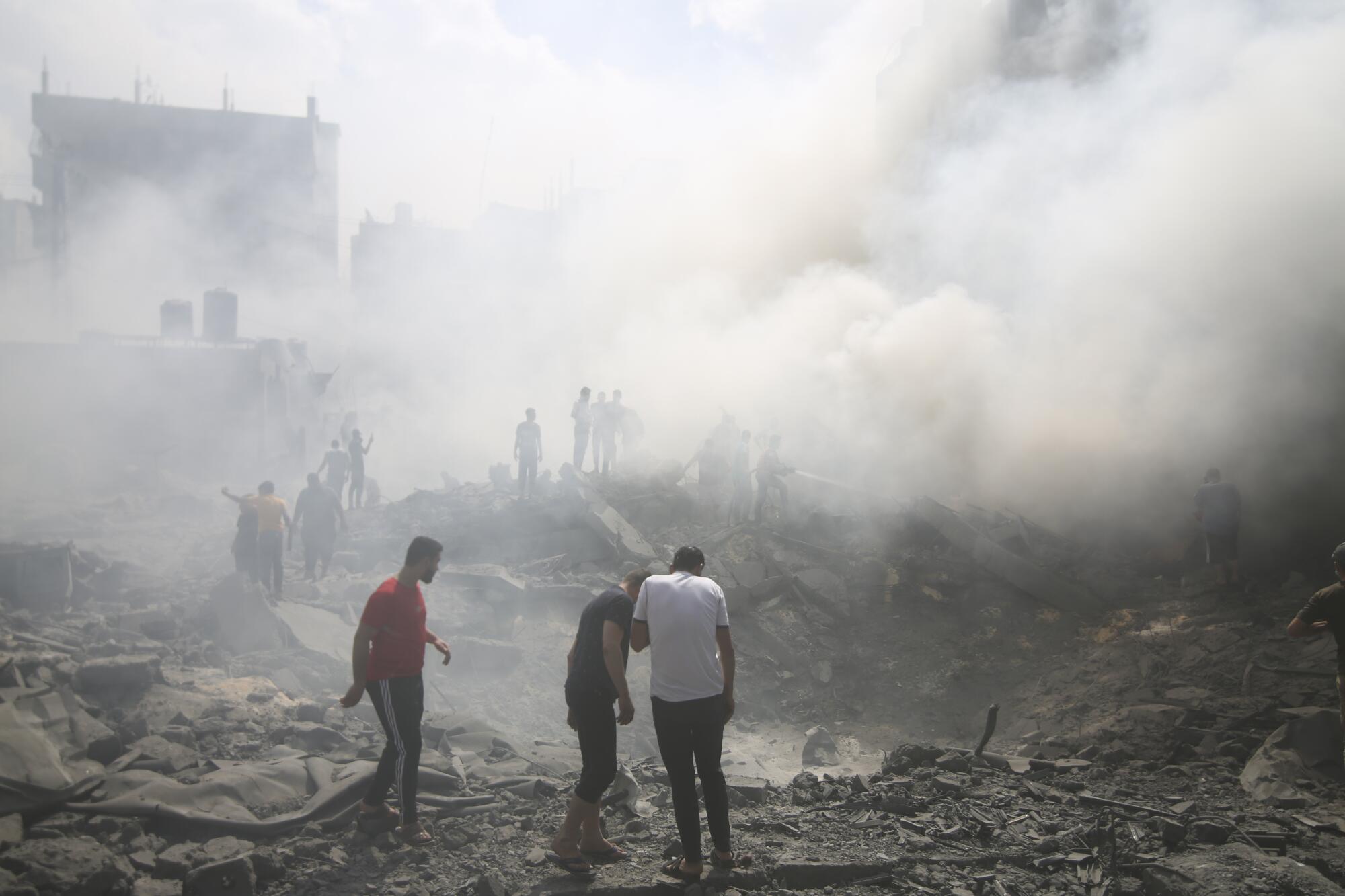
Hamas said Israel’s airstrikes in the last day had killed 13 of the hostages they had abducted from Israel into Gaza. It said the dead included foreigners but did not give their nationalities.
California native Hersh Goldberg-Polin, 23, hasn’t been seen by family since before Hamas’ attack on Israel. They’re determined to find him and bring him home.
Israeli military spokesperson Rear Adm. Daniel Hagari denied the claim.
In Israel, the public remained in shock over the Hamas rampage and frightened by continual rocket fire out of Gaza. The public is overwhelmingly in favor of the military offensive, and Israeli TV stations have set up special broadcasts with slogans like “together we will win” and “strong together.” Their reports focus heavily on the aftermath of the Hamas attack, stories of heroism and national unity, and they make scant mention of the unfolding crisis in Gaza.
The Palestinian Health Ministry reported 16 Palestinians killed Friday in the occupied West Bank, bringing the total of West Bank Palestinians killed since Hamas’ rampage to 51. The U.N. says attacks by Israeli settlers have surged there since the Hamas assault.
Israel said Thursday it would allow no supplies into Gaza until Hamas frees the hostages.
Israeli troops make foray into Gaza
Israel’s raids on Friday marked the first word of troops entering Gaza since Hamas’ attack. The incursions did not appear to be the beginning of an invasion. But the evacuation order was taken as a further warning of an expected ground offensive. Israel has announced no such move, but has been massing troops along the Gaza border.
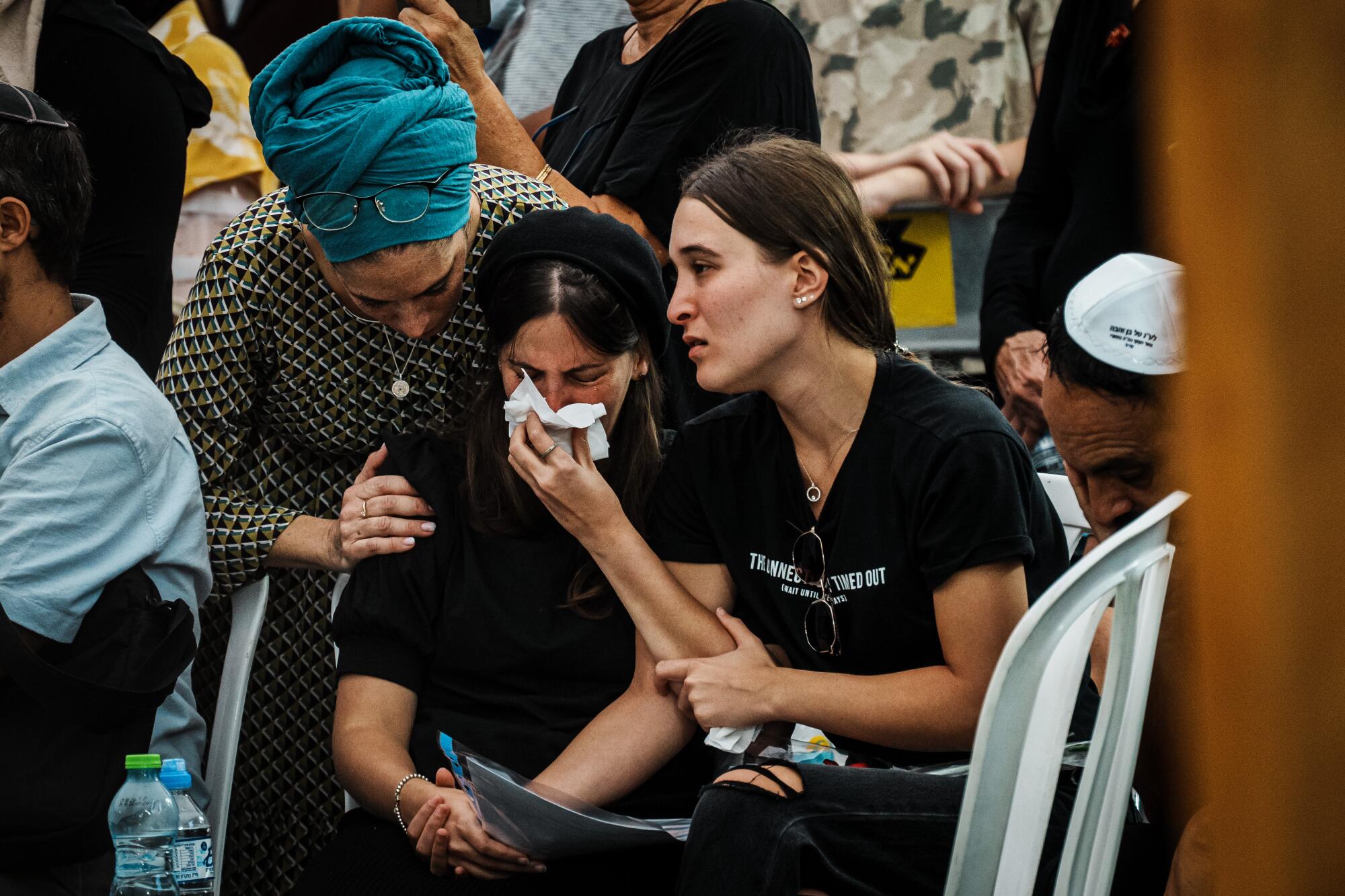
The U.N. said that the Israeli military’s call for civilians to head south affects 1.1 million people. If carried out, that would mean the territory’s entire population would be crammed into the southern half of the 25-mile-long strip.
An Israeli spokesperson, Jonathan Conricus, said that the military would take “extensive efforts to avoid harming civilians” and that residents would be allowed to return when the war is over.
Israel has long accused Hamas of using Palestinians as human shields. Israeli Defense Minister Yoav Gallant said Israel wanted to separate Hamas militants from the civilian population.
Less than a month before Hamas fighters mounted an attack that would kill more than 1,200 Israelis, they practiced in a very public dress rehearsal.
“So those who want to save their life, please go south,” he said at a news conference with visiting U.S. Defense Secretary Lloyd J. Austin III.
U.N. spokesperson Stéphane Dujarric said it would be impossible to stage such an evacuation without “devastating humanitarian consequences.” He called on Israel to rescind any such orders.
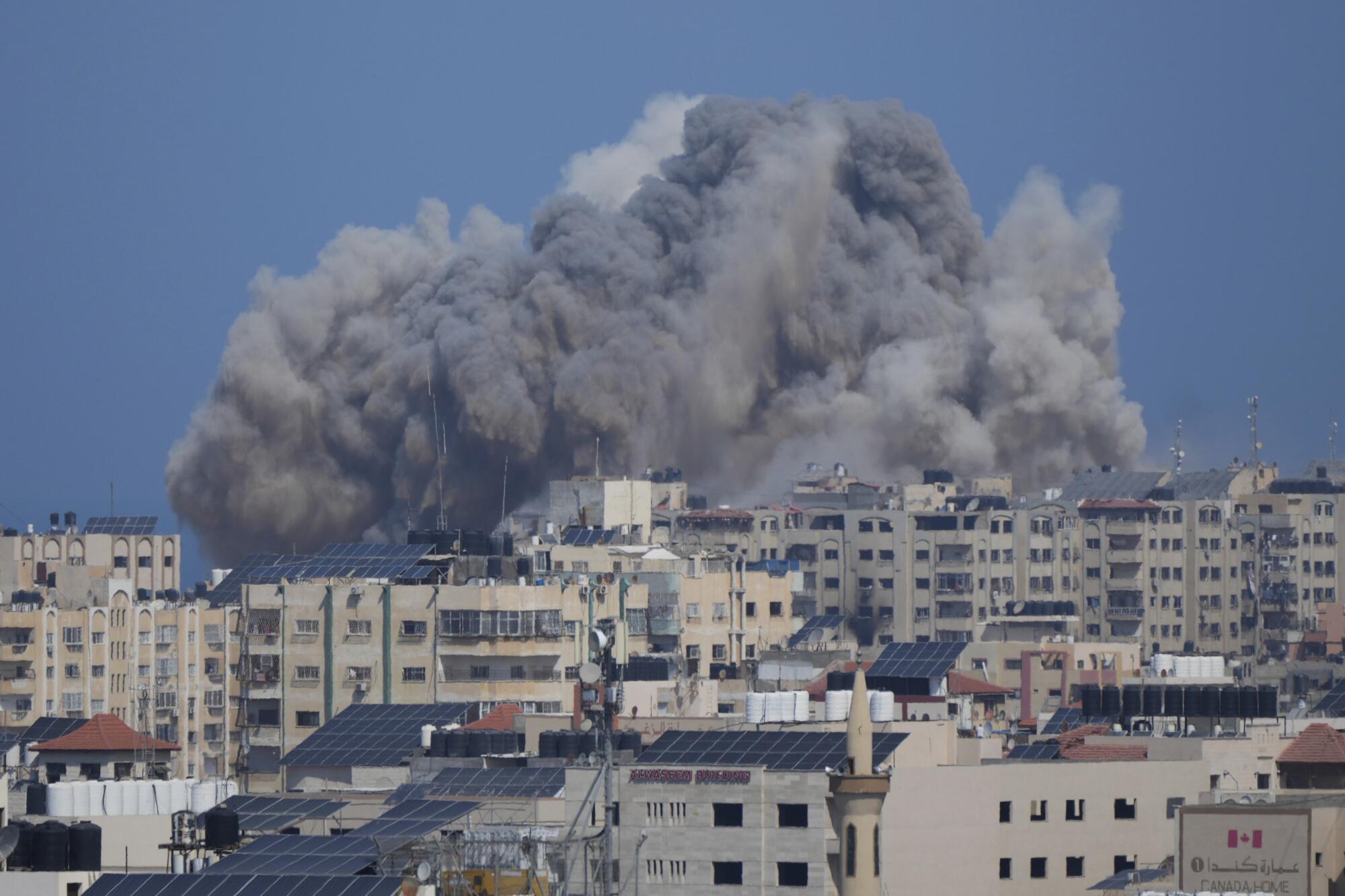
Palestinians in Gaza grapple with where to go
Hamas’ media office said airstrikes had hit cars in three places as they headed south from Gaza City. The intended targets of the airstrikes were not immediately clear, and it was unknown whether militants were believed to be among the cars’ passengers.
Two witnesses reported a strike on evacuating cars near the town of Deir el-Balah, south of the evacuation zone and in the area Israel told people to flee to.
Fayza Hamoudi said she and her family were driving from their home in the north when the strike hit some distance ahead on the road and two vehicles burst into flames. A witness from another car on the road gave a similar account.
“Why should we trust that they’re trying to keep us safe?” Hamoudi said, her voice choking. “They are sick.”
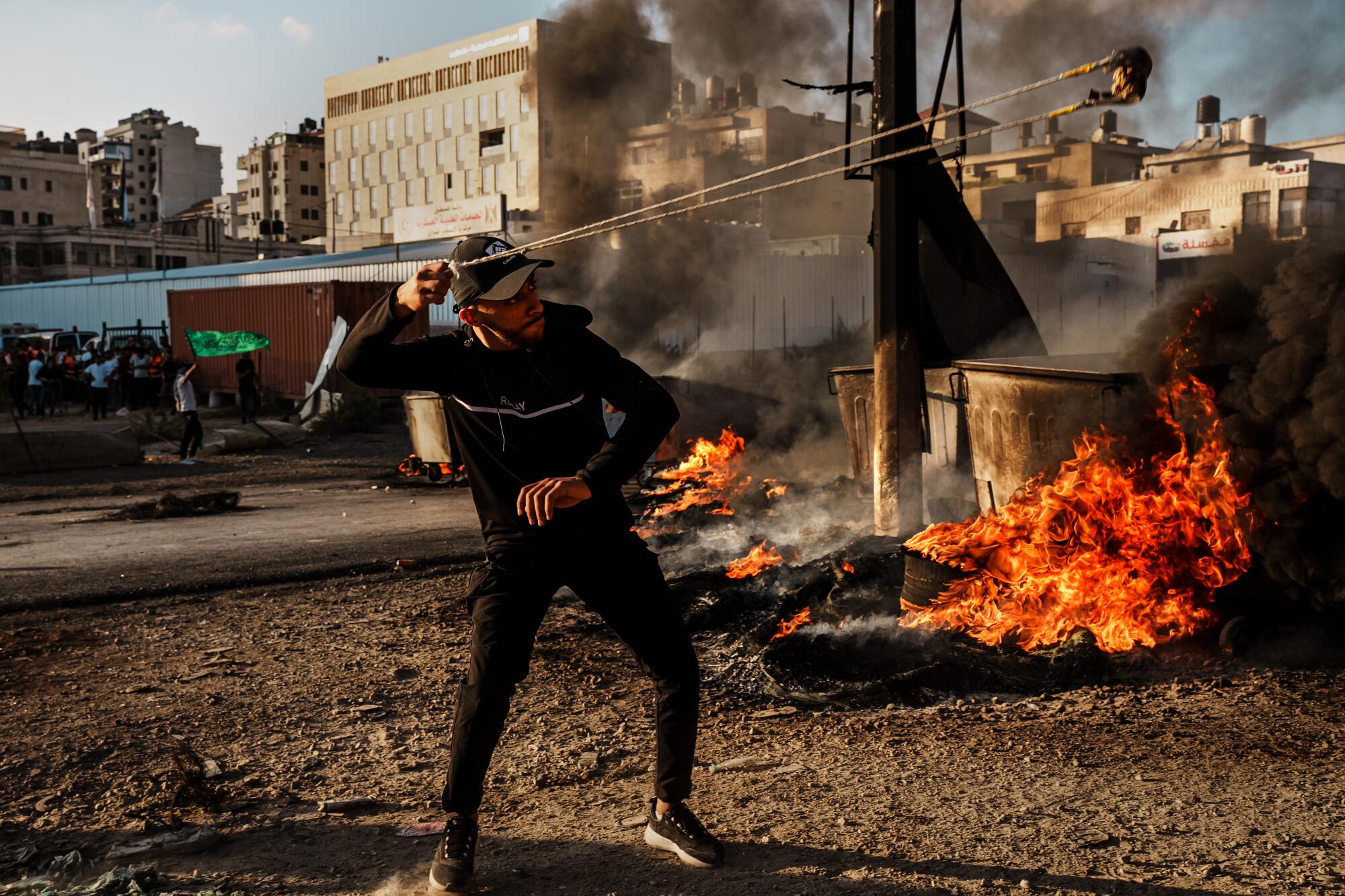
The Israeli military did not respond to a request for comment on the strike.
Hamas called the evacuation order “psychological warfare” aimed at breaking Palestinian solidarity and urged people to stay. But there was no sign of it preventing the flight.
Gaza City resident Khaled Abu Sultan at first didn’t believe the evacuation order was real, then still wasn’t sure he should evacuate his family to the south. “We don’t know if there are safe areas there,” he said. “We don’t know anything.”
Another family contacted friends and relatives in southern Gaza seeking shelter, but then changed their minds. Many expressed concerns that they would not be able to return or that they would be gradually displaced to Egypt’s Sinai Peninsula.
An Orange County school district’s efforts to introduce lessons on the Israeli-Palestinian conflict have ignited emotional discourse among Jewish and Arab American community groups.
More than half of the Palestinians in Gaza are the descendants of refugees from the 1948 war surrounding Israel’s creation, when hundreds of thousands were forced out of what is now Israel. For many, the mass evacuation order dredged up fears of a second expulsion. Already, at least 423,000 people — nearly 1 in 5 Gazans — have been forced from their homes by Israeli airstrikes, the U.N. said Thursday.
“Where is the sense of security in Gaza? Is this what Hamas is offering us?” asked one resident, Tarek Mraish, standing by an avenue as vehicles flowed by.
“What has Hamas done to us? It brought us catastrophe,” he continued, using the same Arabic word, nakba, that’s used to describe Palestinians’ 1948 displacement.
Hospitals struggle
Gaza’s Health Ministry said that it was not possible to evacuate the many wounded from hospitals — which were already struggling with high numbers of dead and injured — and that hospital staff would not heed the warning to leave.
Breaking News
Get breaking news, investigations, analysis and more signature journalism from the Los Angeles Times in your inbox.
You may occasionally receive promotional content from the Los Angeles Times.
Farsakh, of the Palestinian Red Crescent, said there was no way so many people could be safely moved — especially those with ailments.
“We have wounded, we have elderly, we have children who are in hospitals,” she said.
Al Awda Hospital was trying to evacuate dozens of patients and staff after the military contacted it and told it to do so by Friday night, according to the aid group Doctors Without Borders, which supports the facility. The military had extended the deadline to Saturday morning, it said.
The U.N. agency for Palestinian refugees, known as UNRWA, said it would not evacuate its schools, where hundreds of thousands have taken shelter. But it relocated its headquarters to southern Gaza, according to spokesperson Juliette Touma.
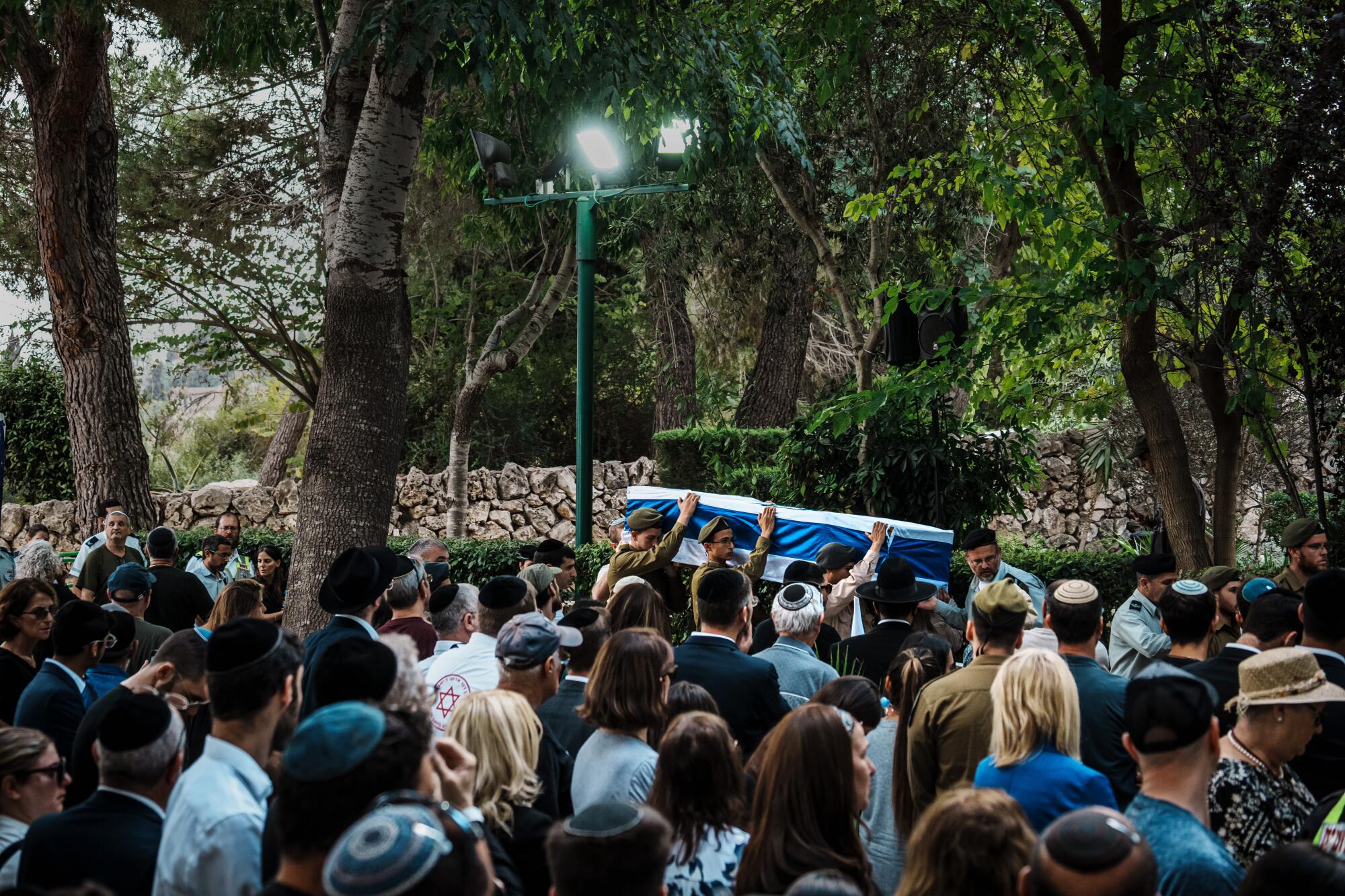
Pressed by reporters on whether the army would protect hospitals, U.N. shelters and other civilian locations, Hagari, the Israeli military spokesperson, warned that “it’s a war zone.”
The U.N. had said the evacuation order it received gave Palestinians 24 hours to move, but the military told the Associated Press there was no formal deadline.
Jan Egeland, secretary-general of the Norwegian Refugee Council and a former U.N. humanitarian chief, said the evacuation call was “an order to relocate. Under humanitarian law, it’s called forcible transfer of populations, and it’s a war crime.”
U.S. elected officials across the ideological spectrum have denounced Hamas’ killings of Israeli civilians and its taking of hostages, reflecting a surge in public support for Israel. A long war could change that.
Egypt has been alarmed by the possibility that tens of thousands of Palestinians may flood out of Gaza into its Sinai Peninsula. It has moved thousands of security forces toward the border to prevent a breach, a senior Egyptian security official said. The official spoke on condition of anonymity because he was not authorized to brief reporters.
At the same time, Egypt has been trying to negotiate to get humanitarian aid to Gaza. Egypt’s Rafah crossing, the only entry not controlled by Israel, has been closed due to airstrikes.
A visit by U.S. Secretary of State Antony J. Blinken on Thursday, along with shipments of U.S. weapons, offered a powerful green light for Israel to drive ahead with its retaliation. Defense chief Austin, who met with Israeli leaders Friday, reiterated the United States government’s support for Israel, saying military assistance would flow in “at the speed of war.”
A ground offensive in densely populated and impoverished Gaza would likely bring even higher casualties on both sides in brutal house-to-house fighting.
More to Read
Sign up for Essential California
The most important California stories and recommendations in your inbox every morning.
You may occasionally receive promotional content from the Los Angeles Times.
